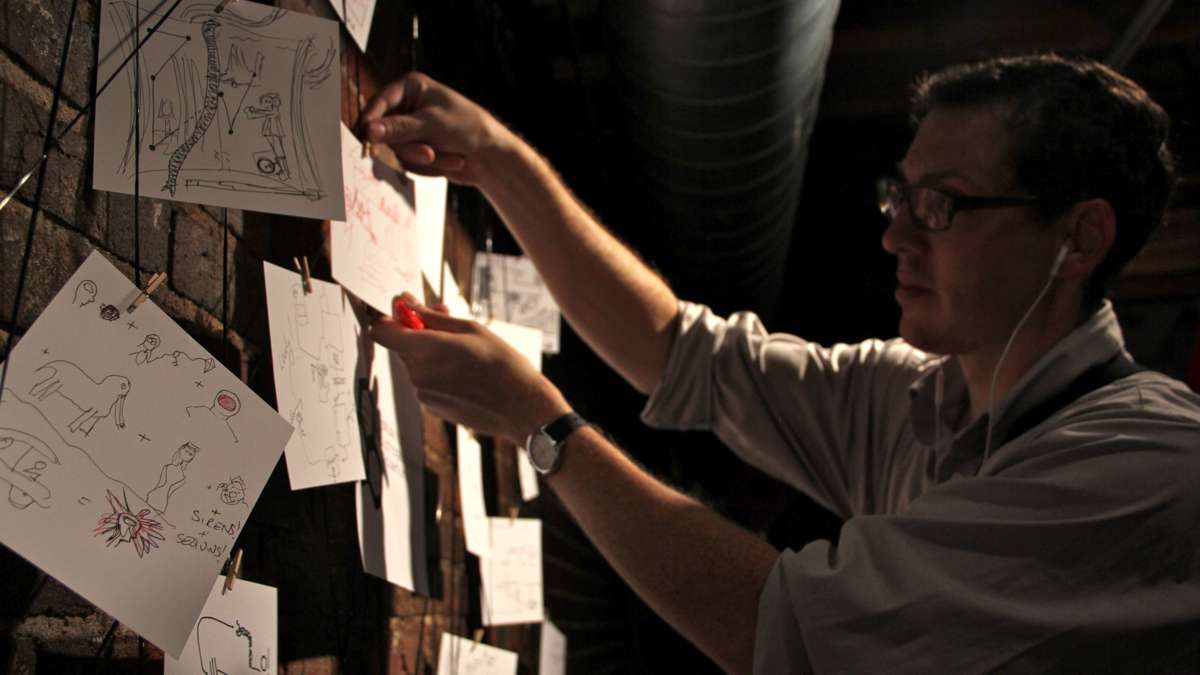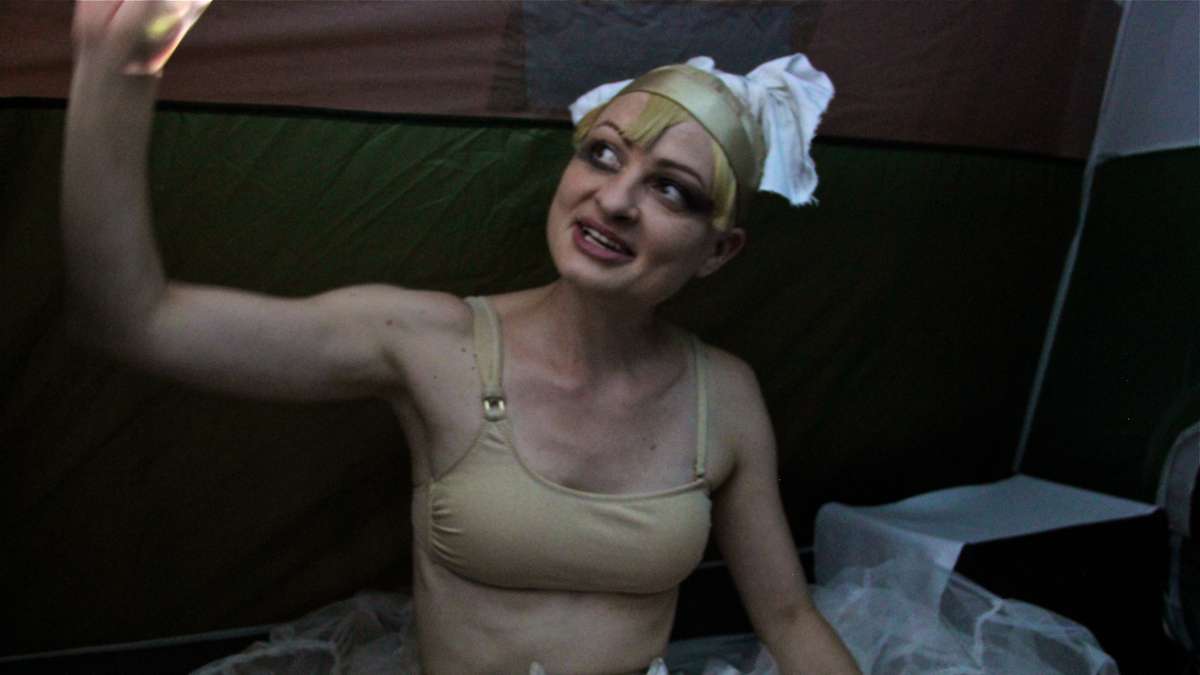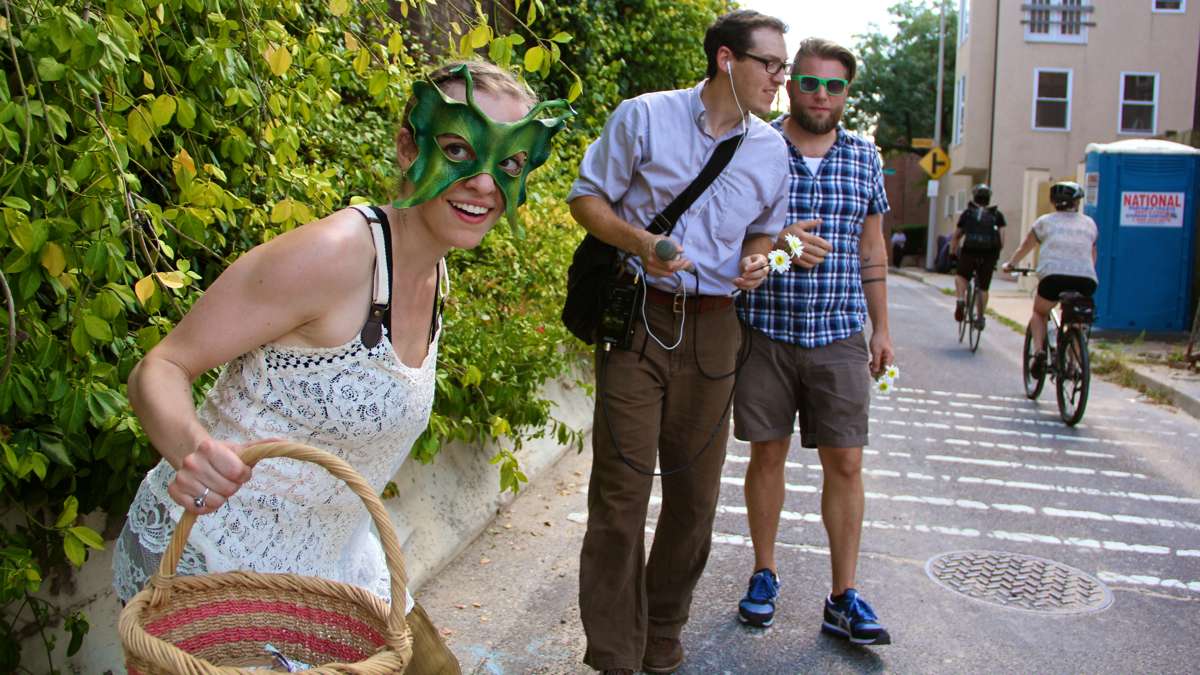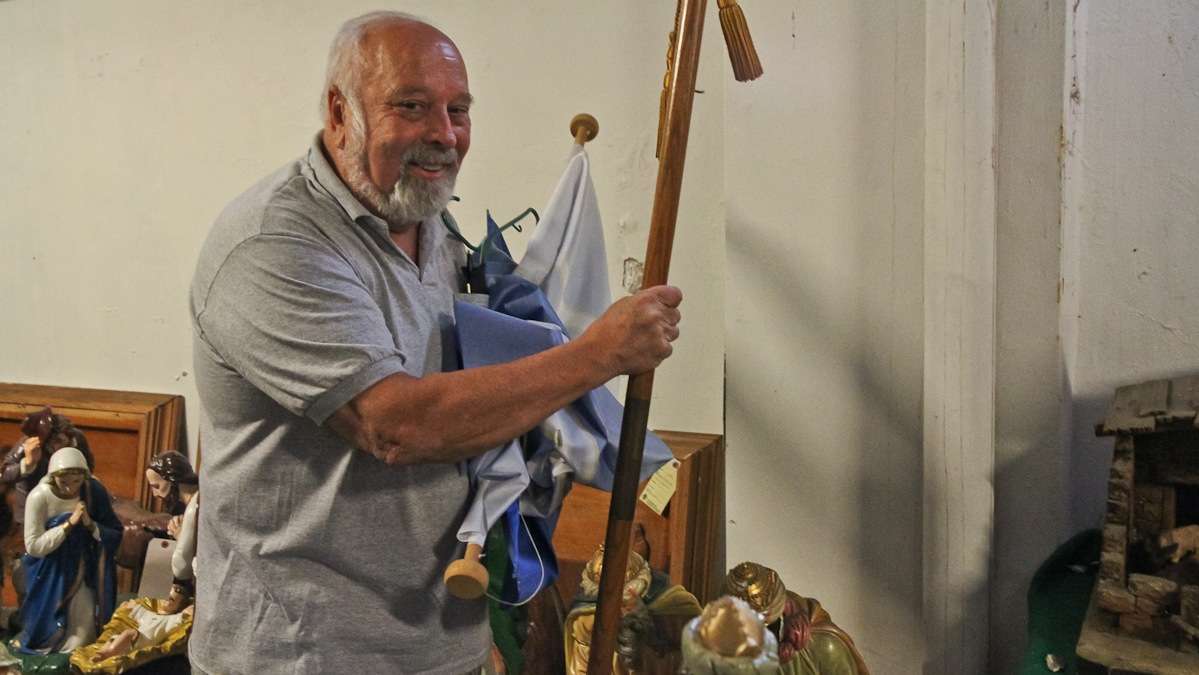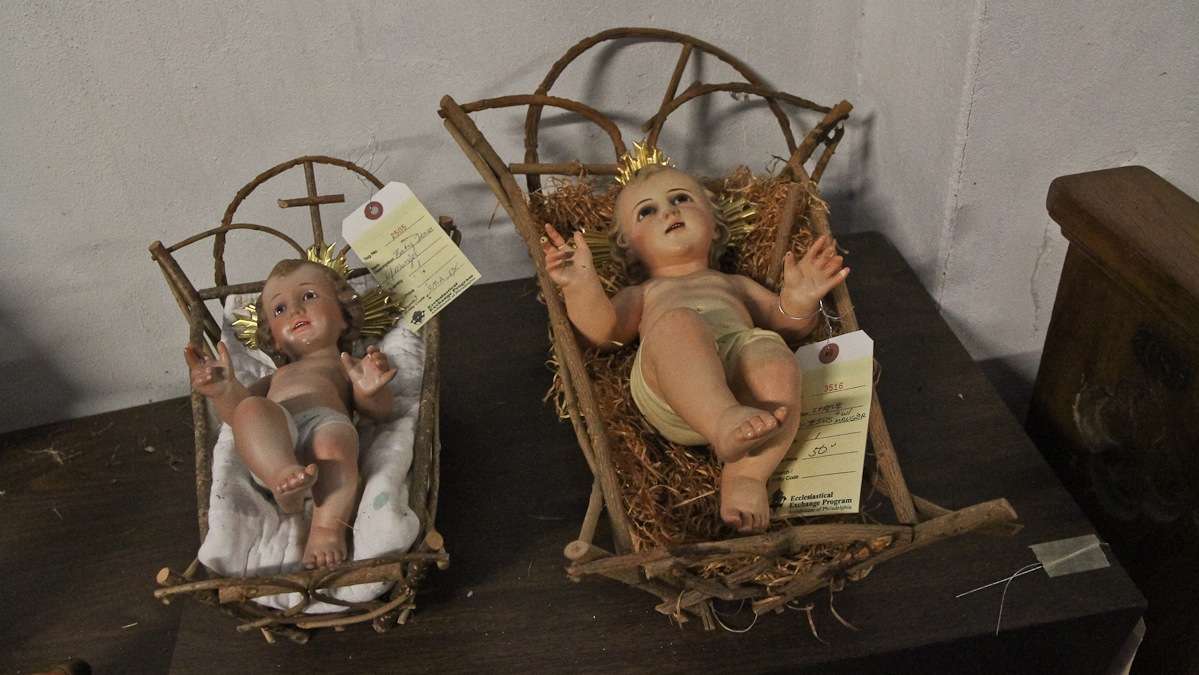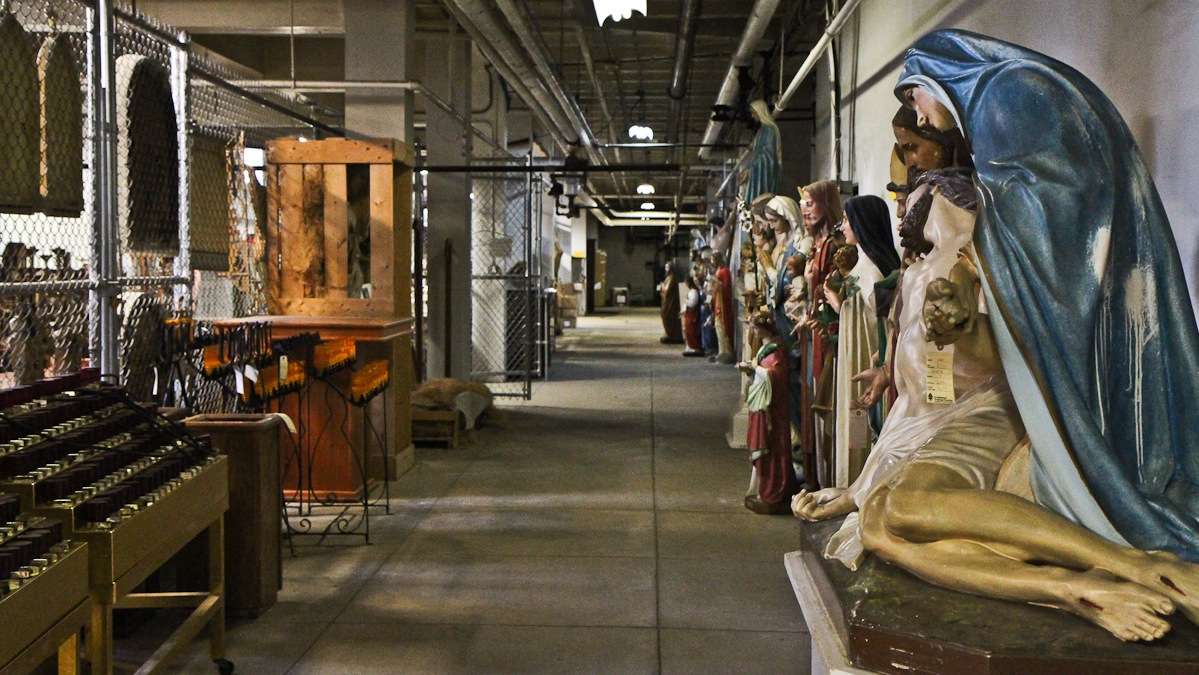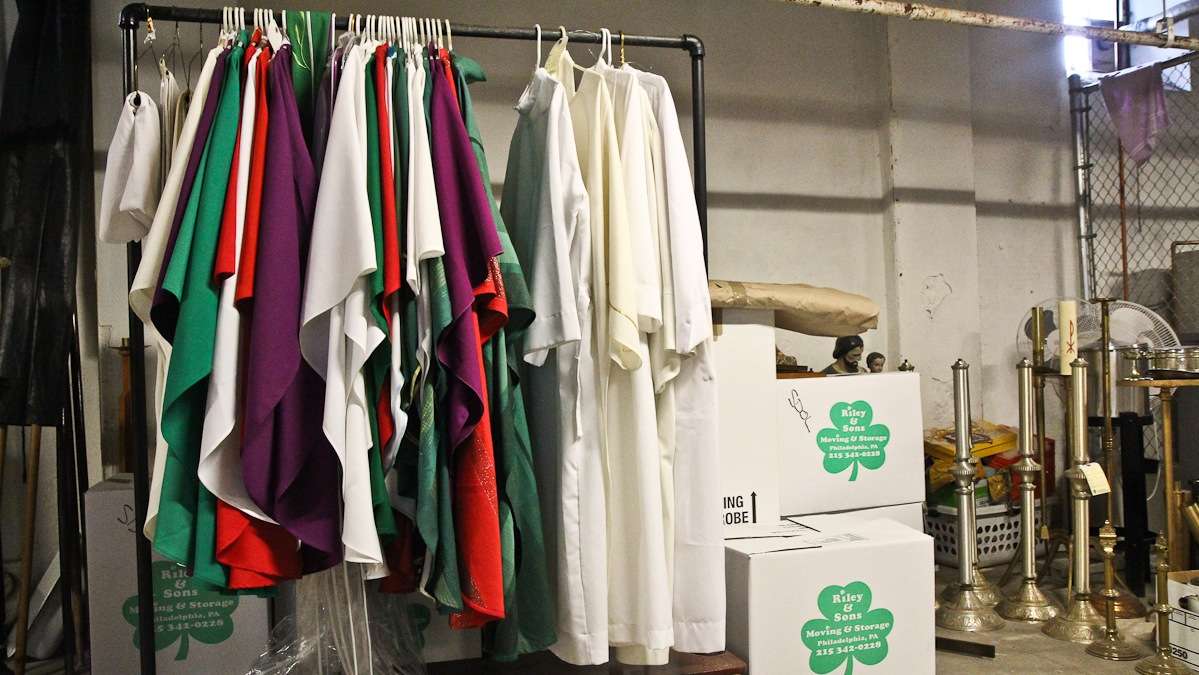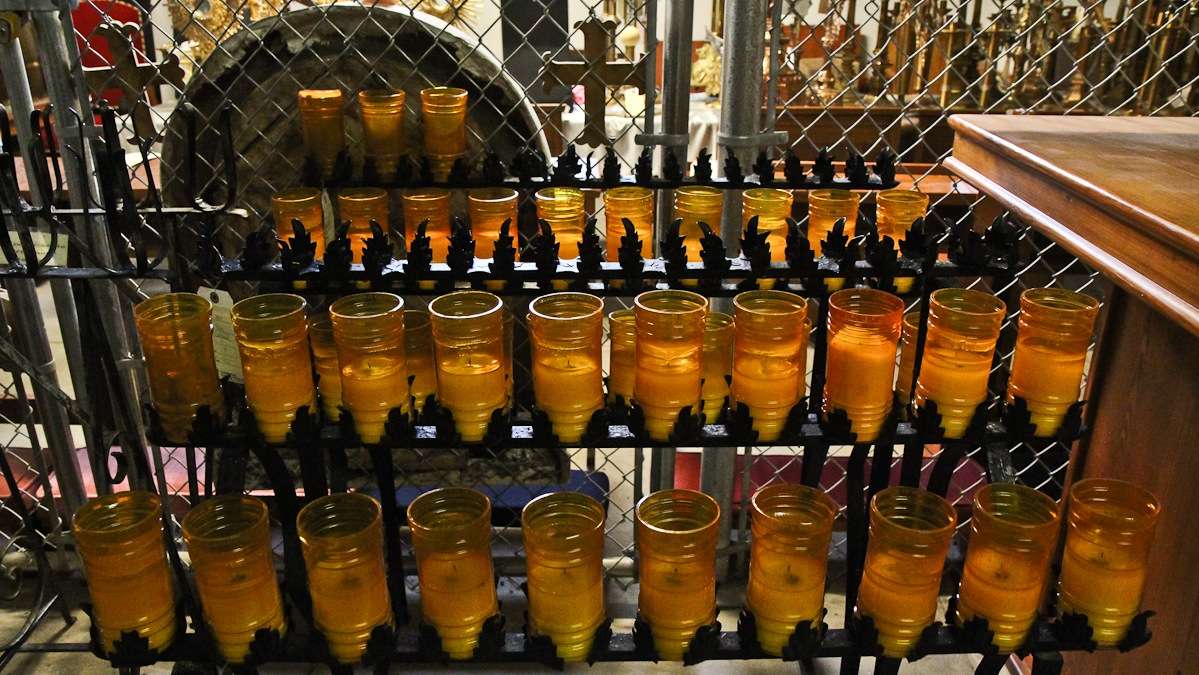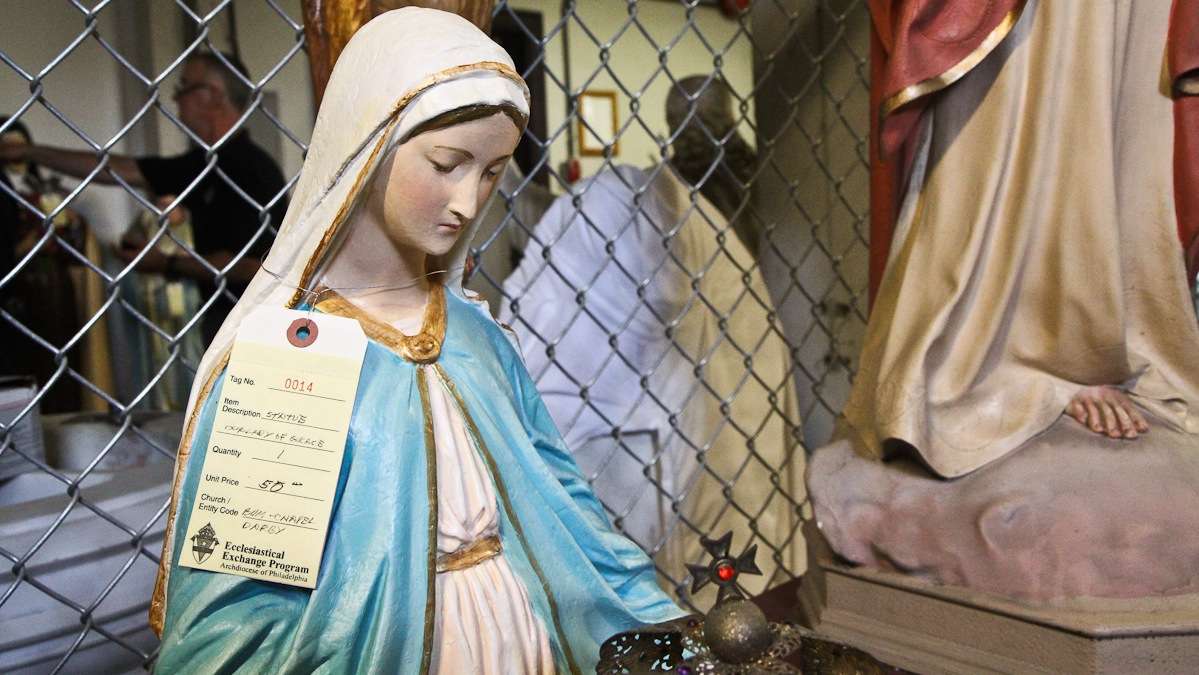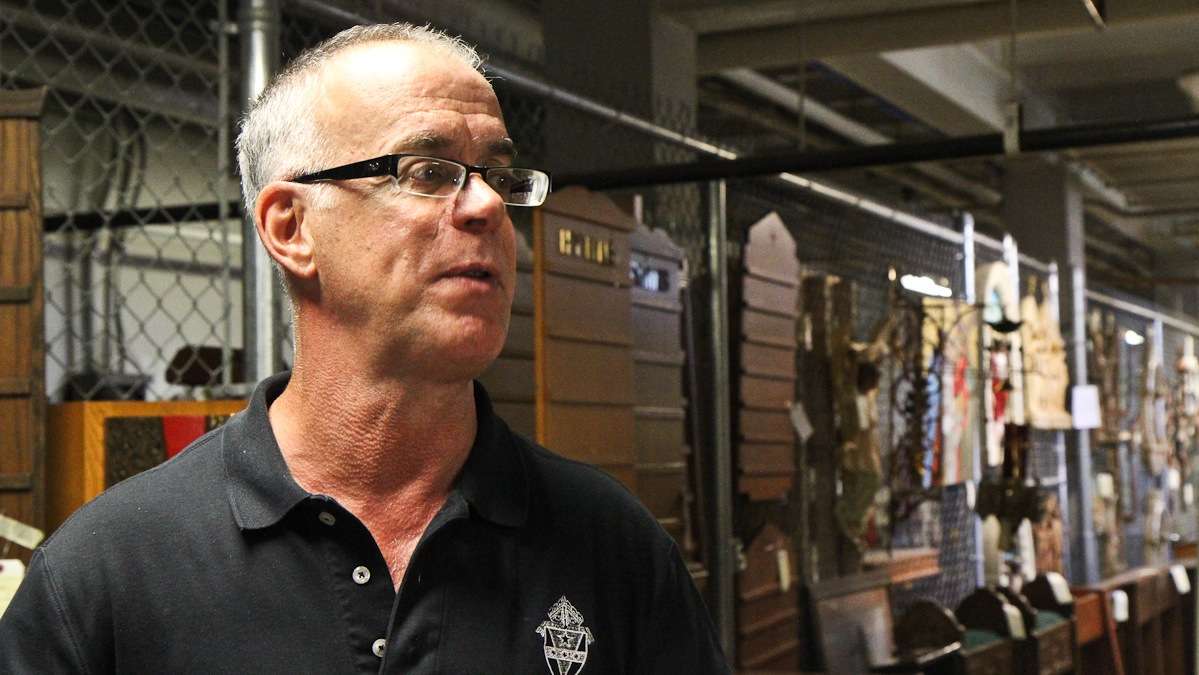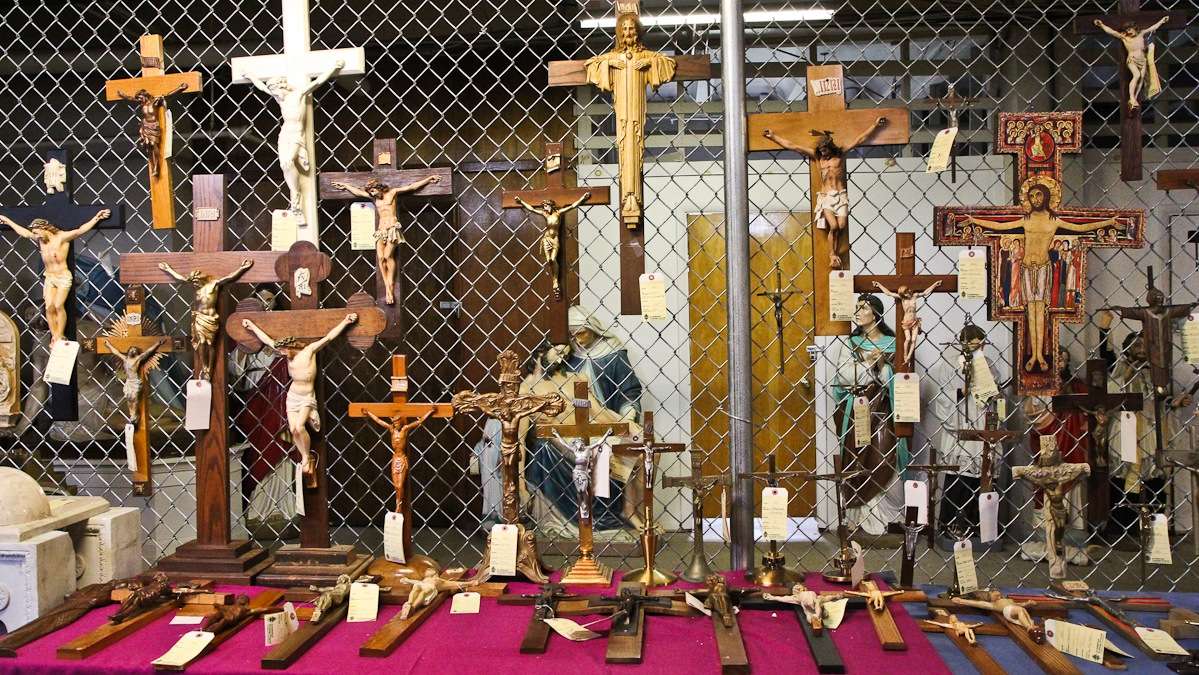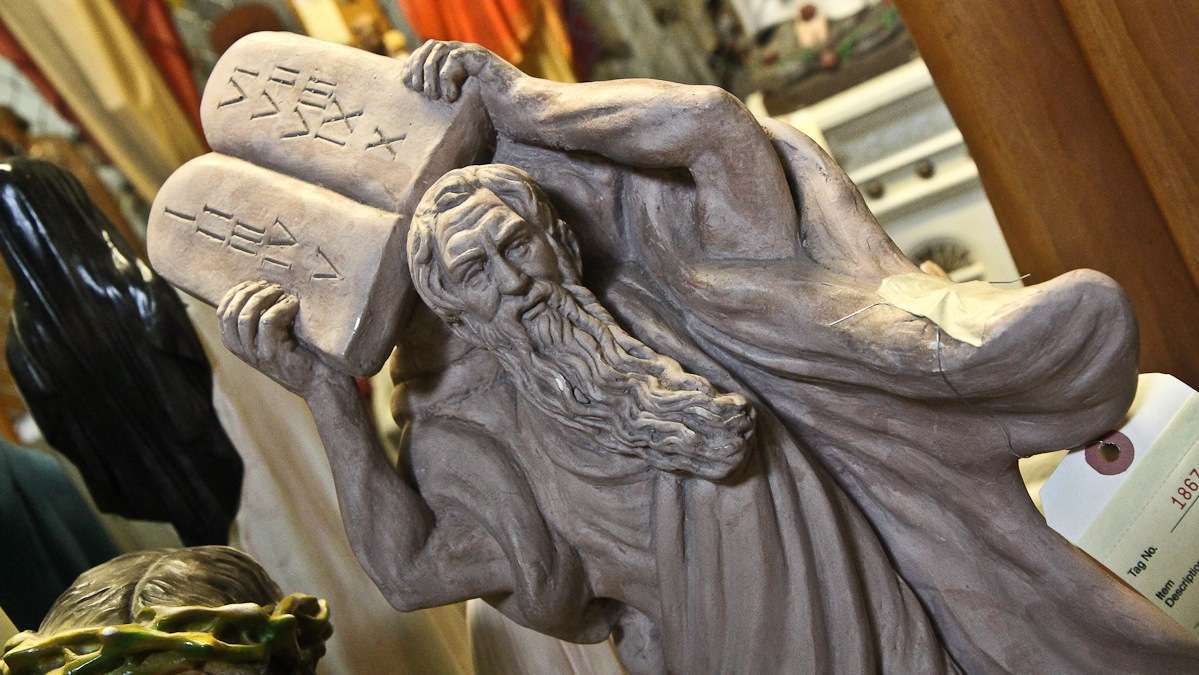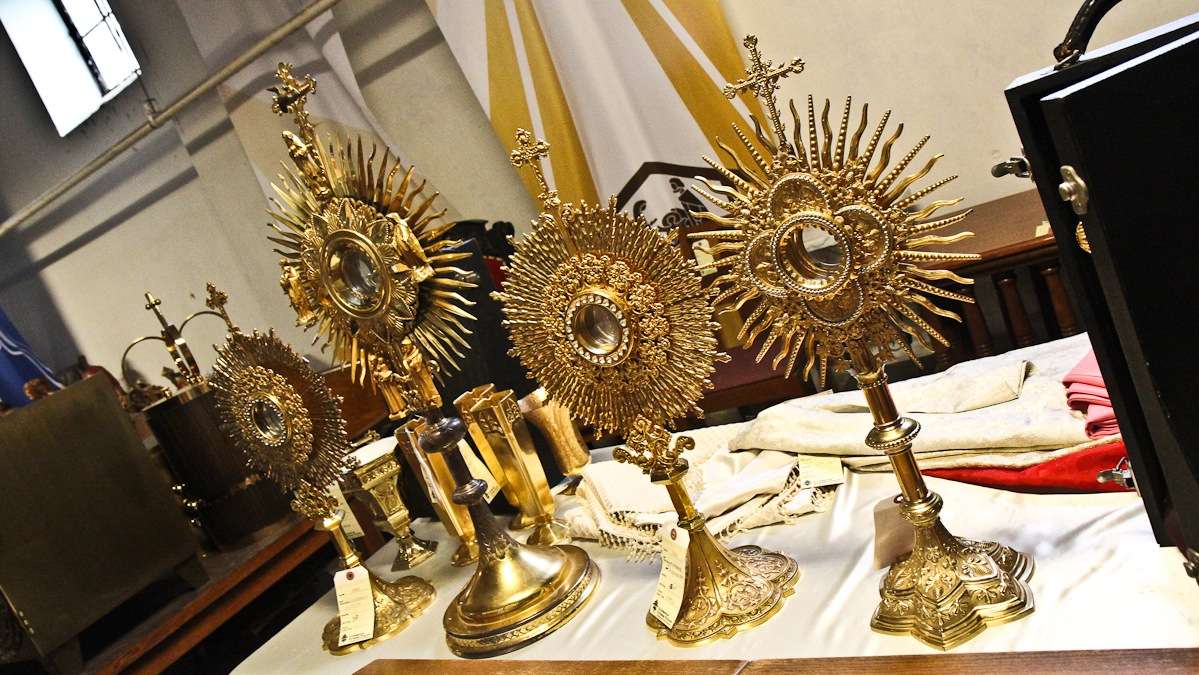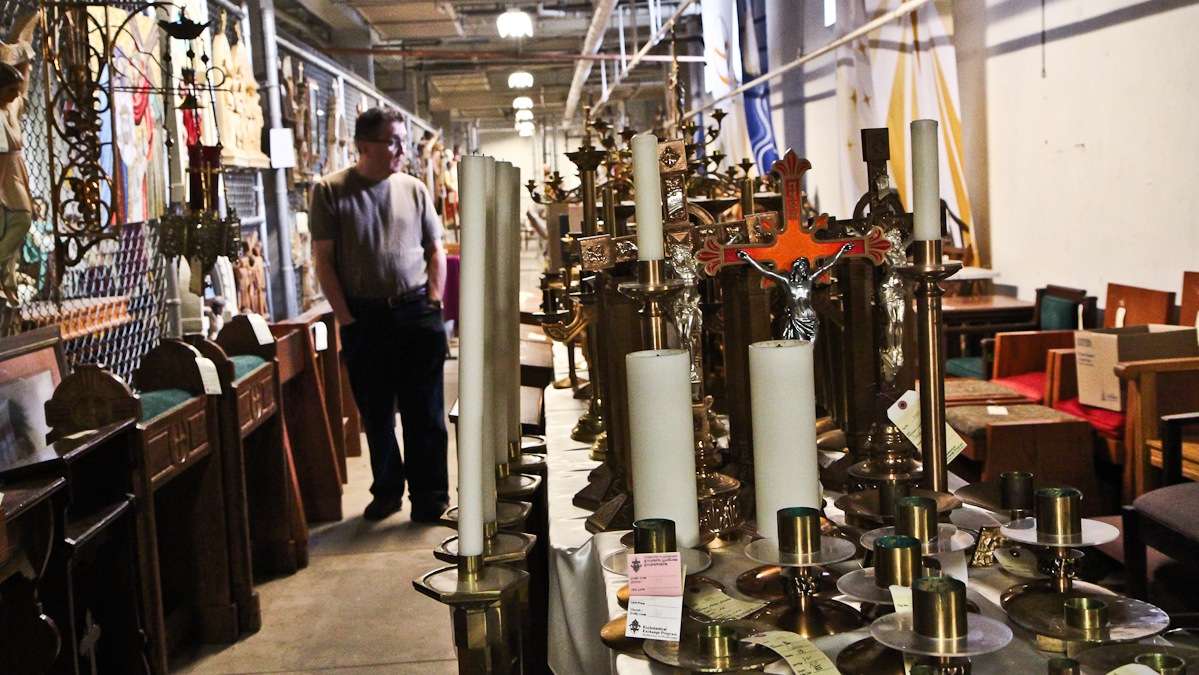There’s a hidden market for sacred objects in Philly — but no laypeople allowed
ListenThe Catholic Archdiocese of Philadelphia created the market to stop sacred objects from closed churches from ending up in bars, thrift stores, or other secular spaces.
We drive up to a black metal gate, and a man in a booth gives us a long list of directions. They eventually lead us to a double metal door, down a set of steps, and into the Ecclesiastical Exchange. It’s a — literally — underground market where ordained Catholics can buy sacred objects from former churches in the Philadelphia region. The exchange is located on the campus of the St. Charles Borromeo Seminary in Wynnewood. It’s like a very exclusive, religious thrift store.
When a church closes down, the archdiocese swoops in, inventories everything, and brings it back to the market. That means crucifixes, church bells, candlesticks, altar linens, and statues of Jesus, the Blessed Virgin Mary, the saints, and anything else of Catholic identity.
The market is open once a month, but only to priests, brothers, and other Catholic clergy or clergy-in-training. No laypeople allowed, unless they have a special note from a priest or deacon.
Impulse shoppers and bargain hunters
Brother Ralph Montedoro is a teacher at Christian Brothers Academy in Lincroft, New Jersey. He comes to the exchange about every other month. Today, he’s looking for an advent wreath, but he ends up finding some banners for the chapel, and he can’t resist.
“What happens is you come with something in mind and then you walk through the place and all of a sudden you say ‘Oh, I like this, I like that,'” he says. “And you wind up going home with other things that you never even thought of.”
Montedoro says he usually winds up buying something. “Because we do come from Jersey, you want to make it profitable and come home with something. You don’t want to come home with nothing after a two-hour drive.”
Montedoro says he likes the market because the money from each sale goes back to the congregation of the closed church, wherever it’s relocated. “It helps that church out. And it helps somebody else out because now, instead of it sitting in a closet somewhere, it’s being put to good use, and some other parish is able to appreciate it.”
A few tables away, seminarian Eric Tamney is browsing the merchandise. With a tight budget, he and his friends come to the market to buy small statues and crucifixes for their rooms.
“I’m not much different than any other college student, you know, minimal spending funds,” he says. “So I come down here looking for almost like a bargain.”
Tamney, 19, says he tries not to spend more than $50 when he comes to the market. “This statue here of the Blessed Mother, it’s kind of right in my price range,” he says. “It’s $50. The paint doesn’t appear to be chipping anywhere. Decent size too. So this is actually something I think I’m going to try and purchase.”
Tamney will try to negotiate a lower price with program coordinator Ed Rafferty. “I might offer him $40 or $45,” he says. “Plead the poor college student case.”
Customer satisfaction
If an object needs a little work — say, a chipped statue, a stained banner, or a nativity scene missing an infant — then Rafferty might give a discount. But in any case, he says, it’s cheaper than buying from religious catalogs.
“We are definitely a benefit to the parishes who are really in need of items and just don’t have the budget,” Rafferty says. “And we get thanked for that every day.”
Not every retailer gets to hear that kind of praise.
Song credit: “Bargain,” by The Who
WHYY is your source for fact-based, in-depth journalism and information. As a nonprofit organization, we rely on financial support from readers like you. Please give today.




